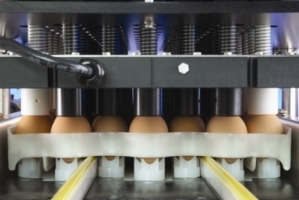Maternal antibody & in ovo vaccination

New research suggests that low maternal antibody concentrations at day 18 (E18) or day 19 (E19) of incubation may be one reason why in ovo vaccination is so successful, and holds the key to the future development of new vaccines for chickens.
Scientists have known for some time that maternal antibody can interfere with the action of vaccines that are given within a few days of hatch. However, the impact of these antibodies on in ovo vaccination is not well understood.
New findings presented by Jan-Kees van den Wijngaard at this year’s World Vet Poultry Congress in Morocco, suggest that lower maternal antibody (IgG) levels in key tissues such as the respiratory tract at the time when in ovo vaccination is carried out decreases the potential for interference with vaccine activity.
Researchers collected yolk, blood (serum), amniotic fluid and washings from the respiratory tract of late stage broiler embryos and from day-old chicks. The samples were then analysed to determine the levels of antibodies (IgG) to Infectious Bursal Disease Virus and Infectious Bronchitis Virus.
Embryos (E18 and E19) serum levels of IgG were lower compared to the day old chicks, confirming the results of other studies which have shown that serum maternal antibody levels peak between day one and day three post-hatch.
No IBDV or IBV antibodies from embryos (E17 and E18) or day old chicks were found in the washings from the upper respiratory tract. In the amniotic fluid and about 30% of the low respiratory tract washings there was evidence of low levels of pathogen specific IgG, however these IgG levels appeared to be much lower than that found in serum at hatch.
It is known that a vaccine administered via the amniotic fluid is transferred to the mucosal surfaces of the respiratory tract and the relative lack of maternal IgG at these sites may provide the opportunity for immunity to be stimulated with less interference. By vaccinating in ovo around E18, the vaccine has a window of opportunity to be effective before the steep rise in circulating maternal antibodies that coincides with hatching.
Researchers suggest that more work is required to fully understand the impact of pre-hatch maternal antibody levels on in ovo vaccination, and that is important for the future development of poultry vaccines administered via this route.
Source: Pfizer Poultry Health













